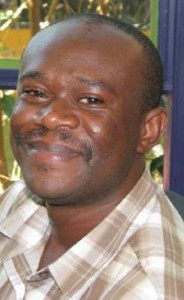Categories
-
ANU Africa Network
Posted on
by
This website was established in 2013 by David Lucas, and renovated and relaunched in 2020 as part of a project to increase awareness of Africa and African studies in the ANU and the ACT, funded by the Australian Government’s Department of Foreign Affairs and Trade.
Another outcome of that project was a major research report, published in August 2021, African Studies at the Australian National University and in the Australian Capital Territory, analyzing the past, present and future of the study of Africa at the Australian National University and the wider Australian University sector.

The major innovation on this updated website is the creation of the ACT Africa Expert Directory which lists experts on Africa from institutions around the ACT, primarily the ANU. We will continue to curate this list, offering a key resource for media, government and non-government organizations seeking expert facts and opinions on Africa. Individuals can request to be added to the list by contacting the website managers.
Another notable addition is the expanded directory of PhD theses on Africa produced in the territory’s universities, a solid measure of the vitality of the study of Africa in the city of Canberra.
Reviewing these directories, it is revealing to note that the vast majority of research on Africa is produced by disciplinary experts (environmental scientists, economists, demographers, etc.) rather than area studies experts. This means that the study of Africa is woven into the fabric of the research culture of the ANU and the ACT’s other universities in ways that are not necessarily apparent.
-
COMMONWEALTH RESEARCH
Posted on
by
The ACT Branch of the Royal Commonwealth Society has announced the first Phyllis Montgomerie Commonwealth Award of up to $5000, which is restricted to Australian citizens resident in the ACT. “Proposed projects must be carried out in a Commonwealth country and applicants are being asked to include a clear statement of identifiable outcomes.”
“Application forms, background information about the award, the Commonwealth ACT Branch and the RCS ACT Branch, are available on request at rcsact@bigpond.com “
Closing date 28th November.
-
The first Caldwell African Research Visiting Fellow
Posted on
by
Dr Makandwe Nyirenda from the Africa Centre for Health & Population Studies, University of KwaZulu-Natal in South Africa has been awarded the first John C Caldwell African Research Visiting Fellowship and should arrive at the ANU later this year.
The Fellowship is funded through the John C (Jack) Caldwell Chair in Population, Health and Development Endowment Fund – Jack Caldwell being one of the ANU’s most distinguished Africanists.
Dr Nyirenda is a graduate in Demography and Economics from the University of Zambia, thus maintaining the ANU’s link with UNZA.
For more details see:
https://adsri.anu.edu.au/news-caldwell-fellowship
-
“The Contribution of Constitutional Courts to the Democratic Quality of Elections in Sub-Saharan Africa” 04/09/2014
Posted on
by
Please see the below information on an informal presentation by RegNet PhD Visiting Fellow, Charlotte Heyl. Charlotte is part of our DAAD Research Exchange Program with the GIGA Institute of African Affairs (Hamburg, Germany) led by Dr. Bjoern Dressel of the Crawford School.
The Contribution of Constitutional Courts to the Democratic Quality of Elections in Sub-Saharan Africa
Date/Time: 4th September, Thursday from 3-4:15pm
Venue: RegNet Meeting room, level 3 Coombs Extension BuildingElectoral processes in Sub-Saharan Africa are prone to electoral irregularities. Reoccurring and unsanctioned irregularities shake the confidence of voters and candidates in the electoral process and can thus jeopardize the voters’ willingness to participate in elections as well as the elections’ competitiveness and legitimacy. Impartial electoral contestation adjudication can however serve as an “institutional safety-valve” (Mozaffar / Schedler 2002) that compensates short-comings earlier in the electoral process. In Francophone Africa constitutional courts are the electoral judges of presidential and legislative elections. Which role do these constitutional courts play in reality in electoral processes? How do they contribute to the democratic quality of elections? The doctoral thesis analyzes in a first step the institutional structure and performance of constitutional courts in five African electoral democracies (Benin, Madagascar, Mali, Niger and Senegal) before it examines more deeply the dynamics of electoral adjudication in Madagascar and Senegal.
Charlotte Heyl is a Political Scientist and a research fellow at the GIGA Institute of African Affairs in Hamburg (Germany) as well as at the University of Duisburg-Essen (Germany). She works in a research project on” Judicial Independence in New Democracies” led by Dr. Mariana Llanos. Her doctoral project deals with the role of African constitutional courts in electoral processes. She has field work experience in Madagascar, Mali, Mozambique and Senegal.

